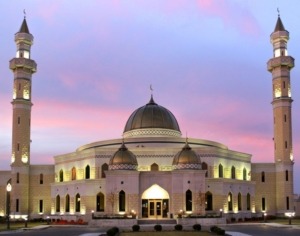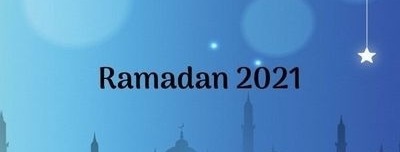Acknowledgement of Ramadan 2021 for our Muslim Friends
Ramadan April 13 through Tuesday, May 1
 Sources: The Atlanta Journal Constitution
Sources: The Atlanta Journal Constitution
In the Islamic calendar, Ramadan is the ninth month and according to the BBC, it counted among the holiest months. Throughout the holiday, observers fast from sunrise to sunset and partake in nightly feasts. This month is a period of fasting and prayer. It is believed to be the month in which Mohammad, whom Muslims consider a prophet, revealed the holy book — Quran — to Muslims. The word “Ramadan” itself is taken from the Arabic word, “ramad,” an adjective describing something scorchingly dry or intensely heated by the sun.
Since the Islamic calendar adheres to the lunar calendar of 12 months rather than the Gregorian calendar, a solar calendar used in the Western part of the globe, every month starts as the new crescent moon emerges. It continues for 29 or 30 days. Each year, this makes Ramadan start 10 to 12 days earlier. To determine when exactly the holy month will begin, Muslim-majority countries look to local moon sighters, according to Al Jazeera.
Fasting hours will vary around the world, according to Al Jazeera. Muslims who live in the Northern Hemisphere will have fasting hours that are a bit shorter and will continue to decrease until 2032. That is the year that Ramadan will occur during the winter solstice, which is the shortest day of the year. Then, fasting hours will increase until the summer solstice, the Northern Hemisphere’s longest day of the year. Muslims who live south of the equator will experience the opposite effect.
Fasting during the holiday is one of the Five Pillars of Islam, along with the daily prayer, declaration of faith, charity and performing the Hajj pilgrimage in Mecca, Saudi Arabia. More than 1,400 years ago, according to Al Jazeera, Muslims were commanded to fast during Ramadan. The fast is intended to remind Muslims of the suffering of those less fortunate and bring believers closer to God (Allah, in Arabic).
During the month, Muslims also abstain from habits such as smoking, caffeine, sex, and gossip; this is seen as a way to both physically and spiritually purify oneself while practicing self-restraint.
Here’s what a day of fasting during Ramadan is like:
Muslims have a predawn meal called the “suhoor.”
Then, they fast all day until sunset.
At sunset, Muslims break their fast with a sip of water and some dates, the way they believe Mohammad broke his fast more than a thousand years ago.
After sunset prayers, they gather at event halls, mosques or at home with family and friends in a large feast called “iftar.”
Toward the end of the month, Muslims celebrate Laylat al-Qadr or “the Night of Power/Destiny” — a day observers believe Allah sent the Angel Gabriel to Mohammad to reveal the Quran’s first verses.
On this night, which falls on one of the last 10 nights of Ramadan, Muslims practice intense worship as they pray for answers and seek forgiveness for any sins.
To mark the end of Ramadan, determined by the sighting of the moon on the 29th night of Ramadan, a 3-day celebration called Eid al-Fitr brings families and friends together in early morning prayers followed by picnics, feasts and fun. In 2021, Eid al-Fitr is likely to fall on Wednesday, May 12.
According to most interpreters of the Quran, children, the elderly, the ill, pregnant women, women who are nursing or menstruating, and travelers are exempt from fasting. Some interpreters also consider intense hunger and thirst as well as compulsion (someone threatening another to do something) exceptions.
But as an entirety, whether Muslims fast or not often depends on their ethnicity and country. Many Muslims in Muslim-majority countries, for example, observe the month-long fast during Ramadan, according to 2012 data from the Pew Research Center.
In fact, in Saudi Arabia, Muslims and non-Muslims can be fined or jailed for eating in public during the day, according to the Associated Press. But in the United States and in Europe, many Muslims are accepting of non-observers.



